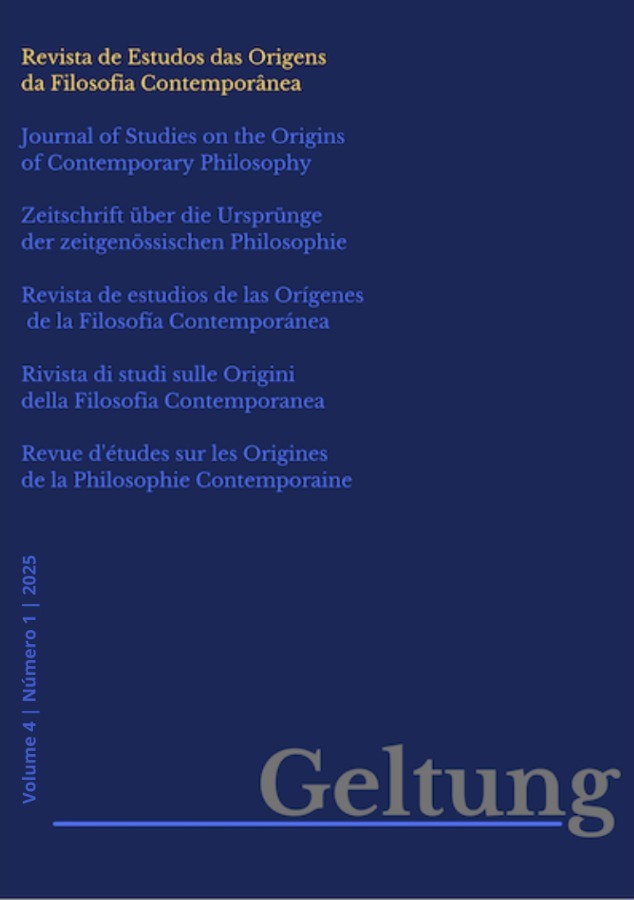Chamada para Artigos: Naturalismo, Normatividade e a Convergência entre as ciências naturais e humanas
O naturalismo filosófico, em geral, e a proposta de naturalizar a moralidade, em particular, têm sido desafiadores e instigantes na filosofia contemporânea, especialmente considerando as tensões entre explicações científicas e normativas das práticas humanas. O naturalismo moral busca compreender os valores e normas morais como fenômenos que emergem do mundo natural. Ele oferece uma ponte promissora para repensar a divisão histórica entre as ciências humanas e as ciências naturais. A questão central aqui colocada é: até que ponto a naturalização da normatividade pode fundamentar uma reaproximação entre essas áreas do conhecimento?
Convidamos submissões para um número especial que explore as relações entre a naturalização na filosofia — e da moralidade, em particular — e a integração entre ciências humanas e naturais. Nosso objetivo é promover um debate sólido sobre o potencial e os limites dessas conexões. A edição investigará como a normatividade, especialmente a normatividade moral, pode ser explicada em termos naturalistas e em que medida tal explicação pode sustentar uma reconfiguração do papel das ciências humanas em diálogo com métodos e insights oriundos das ciências naturais.
Nossa premissa é que a normatividade pode e deve ser explicada em termos naturalistas, a fim de construir um quadro conceitual mais integrado e empiricamente fundamentado. No entanto, tal explicação não está isenta de desafios filosóficos e metodológicos. Na filosofia, opositores do naturalismo apontam o risco de que questões filosóficas significativas sejam eliminadas ou reduzidas diante dos métodos científicos. No tocante à Moralidade, esses críticos veem o perigo de uma redução simplista da moralidade a fatos naturais, o que poderia obliterar as alegadas especificidades normativas das práticas humanas. Todavia, a naturalização promete uma análise mais rica, matizada e verídica da Moralidade, incorporando avanços da ciência cognitiva, da biologia evolutiva e da psicologia social.
Entre as questões que esperamos ver abordadas nas contribuições estão:
-
Até que ponto as ciências humanas podem se engajar com e beneficiar de métodos e resultados das ciências naturais?
-
Quais limites filosóficos e metodológicos emergem ao tentar naturalizar fenômenos normativos na Filosofia e na Moralidade?
-
De que modo abordagens naturalistas da Moralidade podem reformular ou ampliar nossa compreensão da normatividade social e de suas implicações práticas?
-
Pode o naturalismo moral oferecer uma base compatível para explicar de forma robusta a normatividade nas práticas humanas, incluindo a ciência?
-
Como os avanços nas ciências naturais, principalmente nas ciências cognitivas e biológicas, podem contribuir para uma compreensão mais abrangente de problemas filosóficos relevantes e da normatividade moral?
Convidamos artigos que tratem dessas e de outras questões correlatas, buscando tanto intervenções teóricas quanto contribuições empíricas que iluminem as complexidades e promessas dessa abordagem. Nosso objetivo é reunir trabalhos originais e inéditos que desafiem as fronteiras disciplinares e ofereçam novas perspectivas para o diálogo entre ciências humanas e naturais.
Os artigos devem ser submetidos até 1º de março de 2026, e o número especial será publicado no segundo semestre de 2026, na revista Geltung – Journal of Studies on the Origins of Contemporary Philosophy. Para mais informações sobre submissões e diretrizes, consulte nosso site: https://revistas.pucsp.br/index.php/geltung/about/submissions.
Prazo para submissão (CFP): 1º de março de 2026
Editor convidado: Prof. Adriano Naves de Brito







